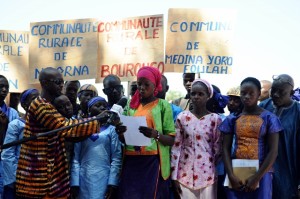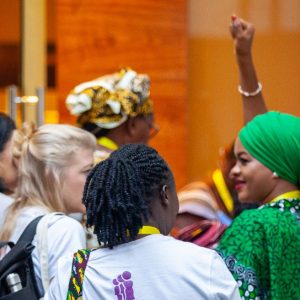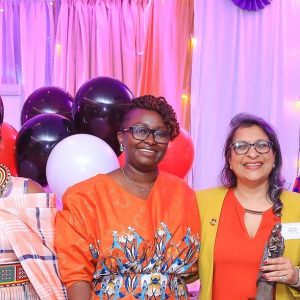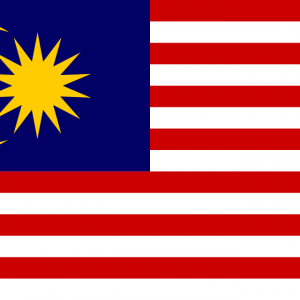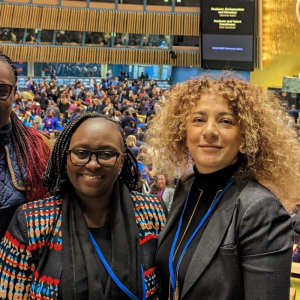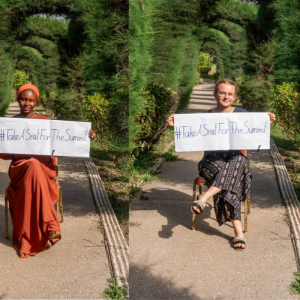557 communities from the department of Médina Yoro Foulah, Senegal gathered on November 24, 2013 to make a public declaration; each decided to abandon the harmful traditional practices of female genital cutting (FGC) and child/forced marriage alongside their neighboring communities and social network. Though planning for this public declaration began one month ago, the actual process of changing the social norms underlying these practices in Médina Yoro Foulah commenced years earlier.
Tostan began working in what is now the department of Médina Yoro Foulah in 2008, when the holistic Community Empowerment Program (CEP) was implemented in ten communities. Since then, 79 communities in the department have completed the CEP, with an additional 26 communities currently participating in the program. As part of the human rights and health class sessions of the program, communities learn about their human rights as well as discuss the harmful health consequences of FGC and child/forced marriage. Participants use this new information to discuss and identify which practices in their own communities support the human rights of all people and which practices violate their rights.
Amsatou Boiro, the president of the women’s group in the declaring village of Waourbé, said that her community had never participated in the CEP; however, they had been visited by a Tostan social mobilization team. Once they learned from the team about the health problems that can result from the practice, they realized that women in their community were experiencing those same problems. This, Amsatou said, was what allowed them to understand the consequences of FGC and what motivated them to commit to abandonment at this public declaration.
The awareness-raising that has been done through social mobilization campaigns, radio programs, and through the CEP itself has contributed to this departmental declaration. Since 2011, four zonal declarations have taken place within the department of Médina Yoro Foulah. This departmental declaration united all of the communities that had declared during these events as well as ten newly declaring communities so that together they could reaffirm their commitment to the abandonment of FGC and child/forced marriage.
In a colorful ceremony, moving speeches were given by community leaders, government officials, and representatives from organizations including UNICEF and Tostan. The participants were entertained throughout by traditional Pulaar drummers, a beautiful skit performed by a group of youth, and a celebrated young rapper from the Kolda region. When it came to the reading of the declaration in French, Pulaar, and Soninké, youth gathered around with wooden signs bearing the names of the different districts that were pledging their abandonment of these harmful traditional practices.
In an interview before the declaration, Village Chief Adama Baldé from one of the declaring communities said, “This declaration is a great thing. It brings people together so that they can exchange ideas and improve their lives.” That is the goal of these declarations: to gather people together so that they can, in solidarity with other communities in their social network, end harmful practices and give their girls a better future.
Story by Allyson Fritz, Tostan.
This blog is part of a series on the Social Mobilisation project that Orchid Project funds in support of Tostan’s long term Community Empowerment Programme. Social Mobilisation is focused on ensuring the acceleration of abandonment of FGC in Senegal. Teams of volunteers who have already abandoned FGC, called social mobilisation agents, visit and create dialogue with inter-connected communities on human rights and the negative consequences of FGC. Their work aims to spread the message of abandonment and encourage others to join them.
Social mobilisation agents are individual members of the community who have been inspired by their understanding that FGC is a harmful practices, and are eager to share their own experiences with others. Often, they are religious, traditional or community leaders who are widely respected and well-connected, active, influential participants.
You can find out more about Social Mobilisation by clicking here. If you would like to support this work, please click here

